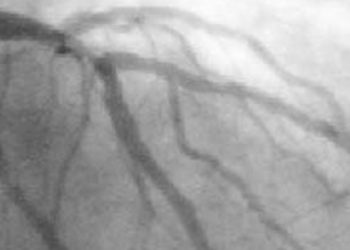Carriers of genetic variants of inherited cardiomyopathies and arrhythmias associated with unexplained sudden cardiac death
1. In this study of White and African American adults who had unexplained sudden cardiac death, nearly 20% of individuals had pathogenic or likely pathogenic variants consistent with inherited cardiomyopathies or arrhythmia syndromes, despite having normal cardiac findings.
2. These findings suggest that genetic testing could play a greater role in the prevention of unexplained sudden cardiac death in the future, although further research is needed.
Evidence Rating Level: 3 (Average)
Study Rundown: The incidence of sudden cardiac death (SCD) in the United States ranges from 180,000 to 450,000 cases annually, where a classification of unexplained SCD describes SCD with no identifiable cause. In recent years, application of genetic testing has advanced the molecular diagnosis of inherited heart diseases in unexplained SCD. However, the associations between pathogenic or likely pathogenic (P/LP) variants of inherited cardiomyopathies (CMs) and arrhythmia syndromes, as well as the prevalence of these genetic variants in various racial cohorts, has never been systematically examined. Thus, this genetic association study sought to investigate community cases of unexplained SCD to determine the frequency of P/LP genetic variants of inherited CMs and arrhythmias, using the frequency of P/LP variants in individuals with unexplained SCD as the main outcome. From 413 adults who had unexplained SCD, 76 patients (18.4%) had P/LP genetic variants consistent with inherited CMs or arrhythmia syndromes, despite having normal cardiac findings. These clinically significant variants were predominantly associated with hypertrophic cardiomyopathy (HCM), dilated cardiomyopathy (DCM), and long QT syndrome. Among these patients, no significant differences were found in clinical and structural heart characteristics between individuals with or without P/LP variants. Lastly, African American and White patients were found to be equally likely to harbor P/LP variants. A limitation of this study was that due to the nature of unexplained SCD, which usually occurs in the community setting, detailed clinical and family history were lacking in the baseline demographics of study participants. Thus, the data collected relied purely on the association of the presence of a variant and the occurrence of death in a single individual, rather than within a familial and genomic cohort.
Click to read the study in JAMA Cardiology
Relevant Reading: Utility of post-mortem genetic testing in cases of sudden arrhythmic death syndrome
In-Depth [case-control study]: This genetic association study, based out of CVPath Institute, a major cardiac referral center in the State of Maryland, screened 683 African American and White adults who died of unexplained SCD and were included in an autopsy database. Using this database, the authors conducted one of the largest systematic genetic examinations of adult patients in the US who died suddenly and were referred for autopsy for suspected SCD despite normal cardiac pathologic findings. In total, 413 individuals had DNA of acceptable quality for genetic sequencing and data on these individuals were compiled from January 1995 to December 2015. Overall, 30 CM genes and 38 arrhythmia genes were sequenced, where variants in these genes were considered as P/LP and examined for their frequency and prevalence in various cohorts. The median (IQR) age at death was 41 (29-48) years, where 259 (62.7%) were men and 208 (50.4%) were African American adults. In total, 76 (18.4%) patients carried variants curated as P/LP for CM and arrhythmia genes, where 52 (12.6%) of the patients had 49 P/LP variants for CM and 22 (5.3%) carried 23 P/LP variants for arrhythmia. Two (0.5%) patients had P/LP variants for both CM and arrhythmia. Overall, 41 P/LP variants for HCM were discovered in 45 (10.9%) patients, 9 P/LP variants for DCM were found in 11 (2.7%) patients, and 10 P/LP variants for long QT syndrome were found in 11 (2.7%) patients. Despite these genetic variations, no significant differences were found in clinical and structural heart characteristics between individuals with or without P/LP variants.
Image: PD
©2021 2 Minute Medicine, Inc. All rights reserved. No works may be reproduced without expressed written consent from 2 Minute Medicine, Inc. Inquire about licensing here. No article should be construed as medical advice and is not intended as such by the authors or by 2 Minute Medicine, Inc.




![Maternal cell-free DNA sequencing superior to standard aneuploidy screening [CARE Study]](https://www.2minutemedicine.com/wp-content/uploads/2014/02/47-karyotype-350x250.jpg)




